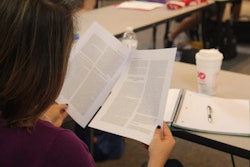
In separate but related cases decided in May 2025, Judge Lisa L. Sadler granted summary judgment motions in favor of Central State University's Board of Trustees, finding that Lena Fields-Arnold and Dr. Ieesha Ramsey failed to establish viable discrimination claims under Ohio law.
Lena Fields-Arnold, a 58-year-old African American woman who worked as CSU's Executive Director of Public Relations and Communications, sued the university alleging discrimination based on race, age, and sex, as well as retaliation under the Family Medical Leave Act (FMLA).
Fields-Arnold—who was on a probationary executive position—was returned to her former position as Communications Coordinator in August 2022, with her salary reduced from $95,000 to $66,000. She left the university three months later and is currently employed at Wilberforce University.
However, Judge Sadler ruled that Fields-Arnold could not establish a prima facie case of age or sex discrimination because her replacement was also a woman who was "not substantially younger" than Fields-Arnold.
Regarding her race discrimination claim, the court found that while Fields-Arnold could potentially establish a prima facie case, she failed to prove that CSU's stated reason for her demotion—poor job performance—was not merely a pretext for discrimination.
Dr. Jack Thomas, CSU's former president who made the demotion decision, stated in an sworn affidavit that Fields-Arnold "was struggling to meet my expectations" and that he was "not satisfied with her written work product." The court noted that Thomas had taken disciplinary action against several other employees, including males, for performance issues during his tenure.















